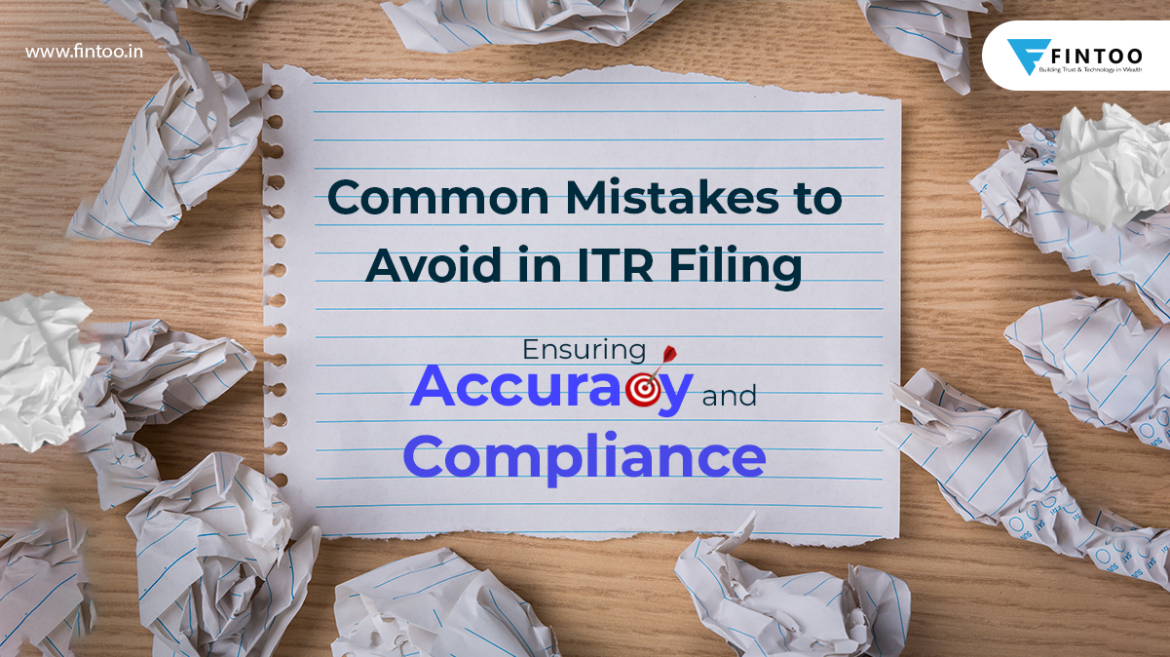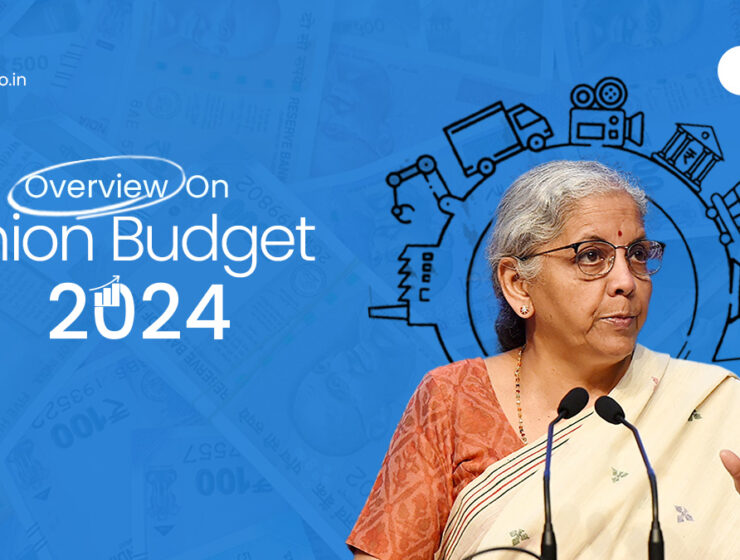

As the ITR filing due date is almost nearing, many taxpayers are hurrying to file their ITRs. While it is crucial to get your ITR filed before 31st July 2023, it is also essential to ensure you don’t rush into it. Usually, individual taxpayers prefer handling their tax filing on their own. So, complications in understanding the tax laws and the last-minute filing pressure can cause taxpayers to make many errors while filing their taxes.
So, let’s take a look at some common mistakes that taxpayers make and how to avoid them.
1. Choosing the wrong ITR form
The first step to filing your ITR is to know which ITR form you need to file. The Income Tax Department has issued 7 ITR forms to categorize taxpayers based on their residential status, source of income, and other factors. If you choose the wrong ITR form, your tax filing will get rejected by the Income Tax Department. So, choose your ITR form based on the category in which you fall.
Which ITR Should You File – Types of ITR Forms
ITR 1 (SAHAJ)
It should be filed by an individual who has an income below Rs. 50 Lakhs, earned from:
- Salary
- One house property
- Income from other sources (only on which TDS has been deducted since income from other sources is auto-populated from the TDS sheet – e.g., interest on fixed deposits)
Also Read: How To File ITR-1 SAHAJ Online In FY 2022-23?
ITR 2
Is to be filed by Individuals and HUFs who do not carry business or profession under sole proprietorship. (This income can exceed Rs. 50 Lakhs)
ITR 3
Takes care of individuals and HUF having income from business or profession which is carried out under sole proprietorship.
ITR 4 (SUGAM)
Is for taxpayers having presumptive income from business or profession.
ITR 5
Is fit for LLP (Limited Liability Partnerships), AOP (Association of Persons), BOI (Body of Individuals), artificial juridical persons, co-operative society, local authority, etc.
ITR 6
Is for Companies not claiming exemption under Section 11
ITR 7
Is to be filed by individuals and companies that have furnished returns under Section 139(4A), Section 139(4B), Section 139(4C), or Section 139(4D).
2. Mistakes in entering personal information
Last-minute tax filers often file their ITRs in haste. This can cause them to make mistakes in entering information such as address, email ID, date of birth, phone number, etc. An incorrect PAN number can lead to penalties or rejection of the return. Moreover, you may fail to receive your ITR acknowledgement due to incorrect contact details. So, fill out your information carefully.
3. Not pre-validating your bank account
If you fail to pre-validate your bank account, your tax refund may get delayed as the income tax department will not be able to credit your refund. So, make sure to validate your bank account to enable a hassle-free transfer of refund to your account.
4. Failure to report interest income
Many taxpayers often miss out on mentioning the interest income that they receive from bank deposits. It is mandatory to disclose all the details of your bank account in your ITR. Hence, keep in mind that you need to disclose your interest income.
5. Not mentioning income from the previous employer
This applies to taxpayers who have switched jobs during the financial year 23. In this case, an individual will have to fill the Form 16 issued by the current as well as previous employer. Your AIS needs to include all your income details to avoid getting into any trouble.
6. Selecting the wrong assessment year
Many people get confused between the terms ‘financial year’ and ‘assessment year’. The financial year refers to the timeframe in which a taxpayer generates income, whereas the assessment year is the year following the financial year. Select the right assessment year while filing your ITR.
7. Not verifying your ITR
Another common mistake that people usually make is that they forget to verify their ITR. The CBDT has issued a time limit of 30 days for verifying your ITR. If you miss this deadline, you may receive a notice from the income tax department. Moreover, correcting this mistake can be expensive and time-consuming. So, verify your ITR as soon as possible.
8. Errors in calculating capital gains
The treatment of capital gains differs based on the income source and asset class. Additionally, due to variations in the tax rates, people tend to make mistakes while calculating their capital gains.
Please note that starting from FY23, if the holding period for the sale of debt fund units is under three years, any capital gains derived from it will be regarded as short-term gains. However, if the holding period exceeds three years, these gains will be taxed at a rate of 20% with the benefit of indexation. The government has cancelled long-term capital gains on debt funds and any other schemes investing up to 35% in equity shares of any domestic company.
9. Not disclosing exempted income
Taxpayers have a common misconception that they do not need to mention their exempted income. However, as per the income tax laws, you need to disclose all your income regardless of whether it is taxable or not.
10. Neglecting minor income
In the case of a minor child who earns income or possesses investments under their name, it is necessary to combine such income with that of the parent. Neglecting to do so would be considered a violation of tax regulations or non-compliance with tax laws.
Also Refer: File Your Taxes Right – Changes to Note in the ITR-1 (SAHAJ) Form
Conclusion
Filing your ITR is a tedious job and the key to ensuring that you get it done correctly is to file it carefully and patiently. And to do so, you need to see to it that you do not wait until the last day to fulfil your ITR filing responsibility. Yet, if you face any issues or have any doubts and uncertainties regarding your tax filing, get in touch with a tax expert for a smooth, accurate, and time-saving ITR filing.
Disclaimer: The views expressed in the blog are purely based on our research and personal opinion. Although we do not condone misinformation, we do not intend to be regarded as a source of advice or guarantee. Kindly consult an expert before making any decision based on the insights we have provided.
Related Posts
Stay up-to-date with the latest information.


